|
Tuan Cao Department of Ecology and Evolutionary Biology Research Expertise: Ecology and Entomology Thesis Title: The effects of crowding on social connectivity, energetic, and fitness in social insects Tuan studies the effects of social density on information flow, division of labor, and group-level energetics in ants. He wants to understand how crowding affects social behavior in social insects. He played with ants in Viet Nam when he was little, and still plays with them now. He will be working with Marguerite Samples and Martha West's 2ndgrade class at Dunham Elementary School. He plans to share with these students the wonders and beauty of science. In his free time, Tuan enjoys running and playing with his two silly dogs.
|
 |
|
Ming Huang Department of Entomology Research Focus: Worker variation in Pheidole ant colonies Thesis Title: Worker size polymorphism in the hyperdiverse Pheidole ants Ming's research examines how and why ants evolve different worker caste |
 |
|
Kathi Borgmann School of Natural Resources Research Focus: Avian ecology and conservation Thesis Title: Why does avian nesting success vary throughout the breeding season: examining the influence of phenology, alternative prey, and climate. Kathi's research focuses on the interactions between seasonal changes in the environment and songbird nest predation. Loss of eggs or young by nest predators, such as jays, snakes, chipmunks, and squirrels is an important cause of nest failure among songbirds. Kathi is examining how seasonal changes in foliage density, prey availability for nest predators, and temperature affect the risk of songbird nest predation. Kathi will be working with Cithel Orozco and Geniece Baer from Liberty Elementary, and looks forward to building an exciting learning environment by promoting science and environmental education. Through this relationship, Kathi hopes to improve her public outreach and science communication skills to inspire people of all ages to learn and appreciate the environment. |
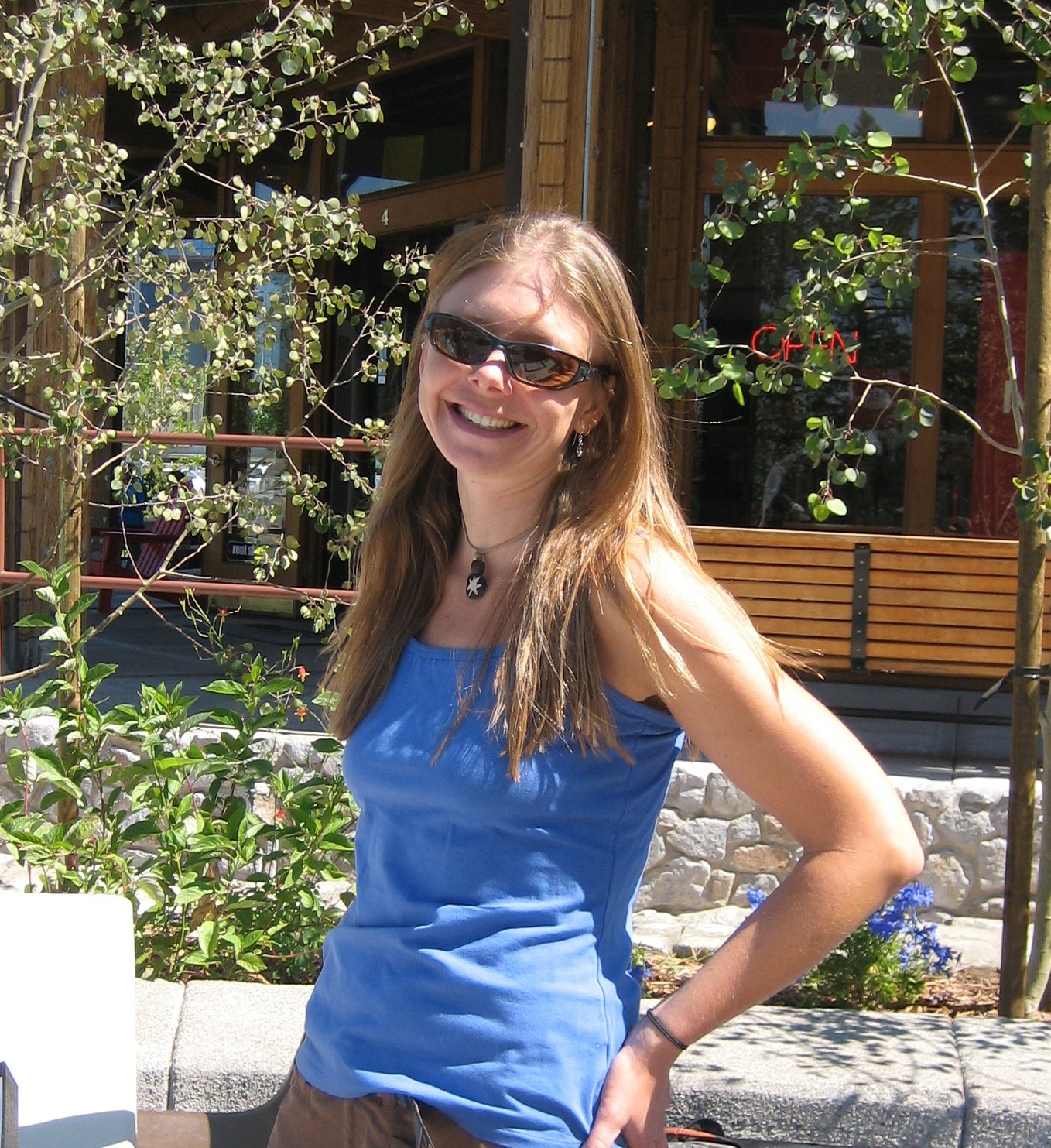 |
|
Luisa Ikner Department of Soil, Water, and Environmental Science
Luisa is currently pursuing a doctoral degree in environmental science, with a particular interest in environmental microbiology. She is currently studying different techniques to ensure that our food and water supplies are safe from harmful microbes. Luisa is working on answering important questions about these microbes such as how they reach us, make us sick, spread to others, and most importantly how to detect them before they contaminate food and water resources. Luisa is working with BioME Teachers Janet Slingerland and Julie Stapleton at Flowing Wells Middle School and hopes to encourage students in their studies by sharing with them her own educational aspirations, struggles and accomplishments. Through her partnership and work in the classroom, she wishes to demonstrate to students that science is a subject in which we are all capable of excelling.
|
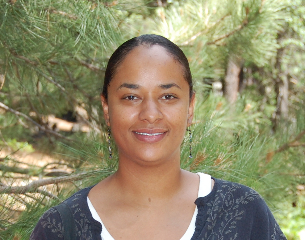
|
|
Aletris Neils School of Natural Resources Research Expertise: Large Carnivores Thesis Title: Ecology and conservation of wild felines on Namibian farmlands
Aletris' research focuses on large carnivores, such as wild cats. Currently, she is studying caracals, a medium sized cat found in Africa, similar in many ways to mountain lions found right here in Arizona. She is working with BioME Teacher Patricia DuMont at Hermosa Montessori School and hopes to introduce her research to students and illustrate to them the important role these carnivores play in maintaining a balanced ecosystem. Throughout her time in the classroom, Aletris plans to teach students how scientists study such large animals. Students will have the ability to track animals who may visit their school campus by tracking animal movement, observing animal footprints and examining clues the animals may leave behind.
|
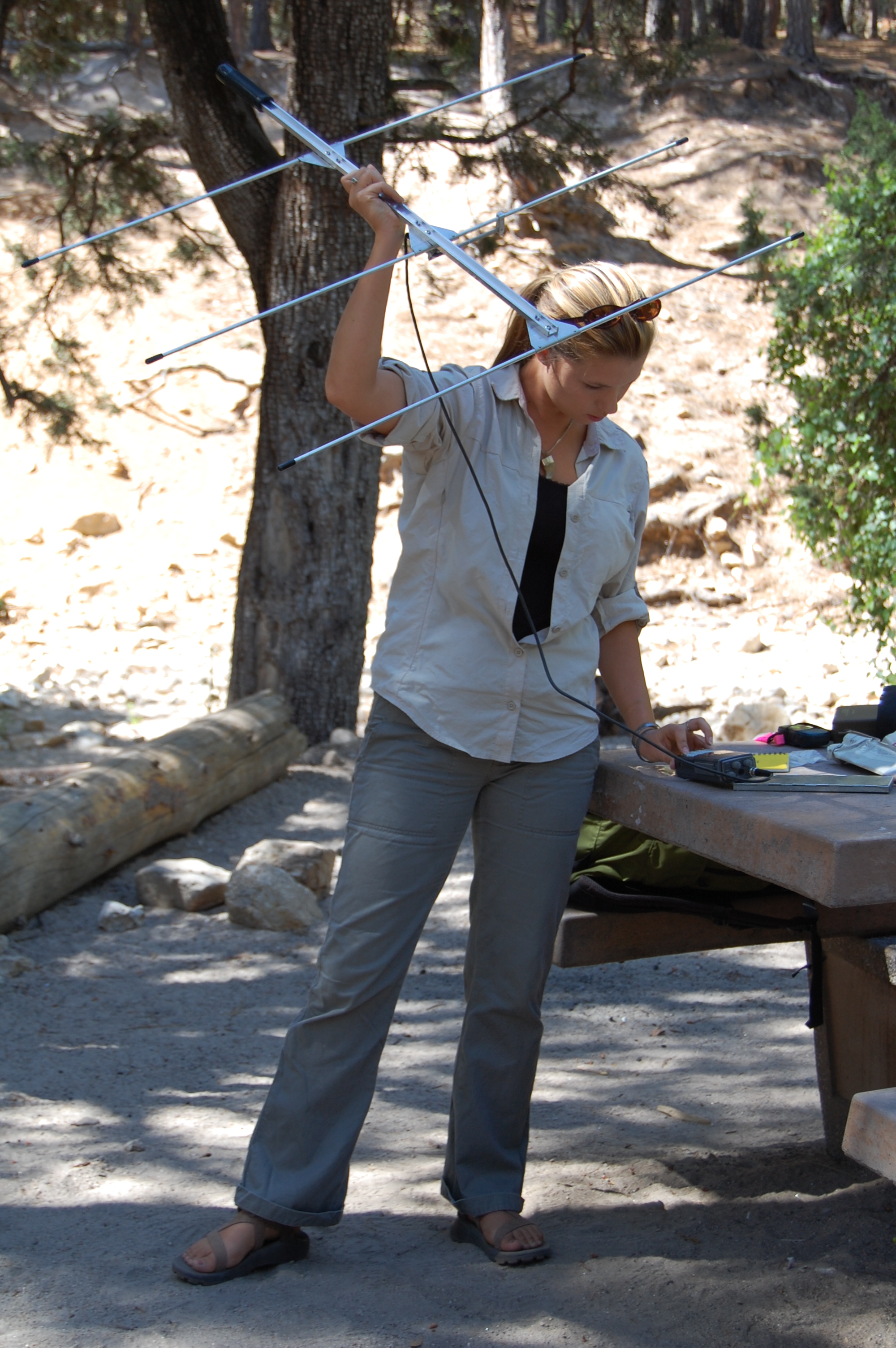
|
|
Randy Vazquez Department of Nutritional Sciences
Randy's research focuses on how the immune system works to maintain a healthy heart. His research work at the Sarver Heart Center focuses on the Immune Basis of Arterial Hypertension, hypothesizing that Hypertension is due to immune mediated vascular remodeling of the Extracellular Matrix. Randy enjoys being a scientist because he has had the opportunity to contribute to the understanding of how things work and is especially exciting to study some of our own body functions. Randy is looking forward to working with BioME Teachers Darrek Hernandez and Patricia Robles-Medina at Mansfeld Middle School.
|
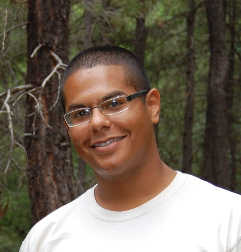
|
|
Victoria Miranda Department of Department of Entomology Victoria Miranda obtained her B.S. from Cornell University in 2006, where she studied entomology and focused on biological control of insect pests such as the gypsy moth and Asian longhorned beetle. She is currently a second-year masters student pursuing a project that investigates the fitness cost of entomopathogens in relation to host diet. She is also interested in integrating K-12 science education and research-based science. |
 |
|
Rachel Zenuk Department of Epidemiology Research Expertise: Cancer Prevention and Control Thesis Title: Breast Cancer Screening and Detection Methods among Mexican-American and African-American Women Rachel is currently working on the Ella Binational Breast Cancer Study, a research study that is being conducted in the US and Mexico to investigate breast cancer in Latina Women. Through this research, Rachel and other scientists are able to gain a better understanding of the risk factors behind breast cancer, a disease that is increasingly affecting Mexican and Mexican-American women. Rachel will work with Anna Heyer at Flowing Wells High School and hopes that by sharing her background and research interests, her classes will learn about maintaining a healthy community. |

|
|
Bryan Helm Department of Ecology and Evolutionary Biology
Research Expertise: Organismal growth and development Thesis Title: To be determined Bryan has a broad interest in organismal growth, development and body size. His research focuses on understanding the factors that lead to the end of growth periods in insect life cycles. Specifically, he studies how metabolic and ecological factors interact to shape and limit growth and body size. Bryan will be working with BioME Teacher, Kevin Kehl at Palo Verde High School. He will bring his study organism, Manduca sexta, into the classroom to teach biology students about the basics of growth, insect diversity, and life-cycles, while exploring how good and poor nutrition affect these characteristics. Furthermore, because parts of his research revolve around these basic elements, he plans to use data gathered with the students to inform his own dissertation research.
|
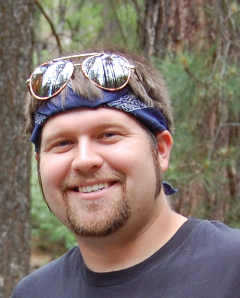
|
|
Stuti Jaiswal Department of Neuroscience Research Expertise: Neural control of Respiration Stuti's research focuses on the neural control of respiration in neonatal rats that have been exposed to nicotine in utero. Researchers have discovered that infants born to smoking mothers have a higher incidence of Sudden Infant Death Syndrome (SIDS) and other breathing abnormalities during the first year of life. Along with other scientists in the lab, Stuti investigates the changes in receptor expression in the brainstem of nicotine exposed neonates, and how this could possibly lead to the different pathologies exhibited by human infants. |
|

